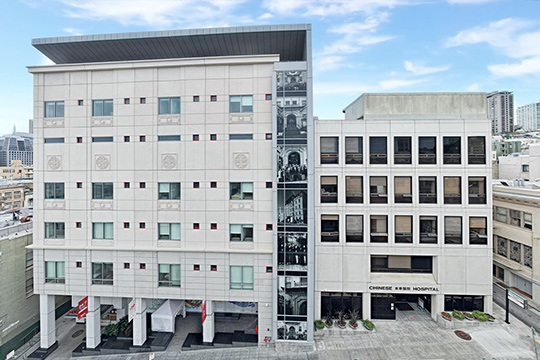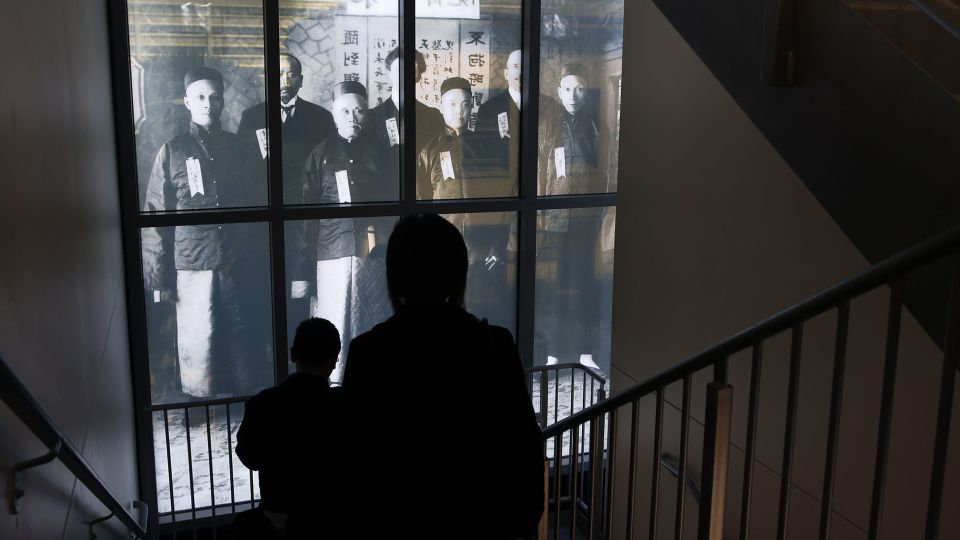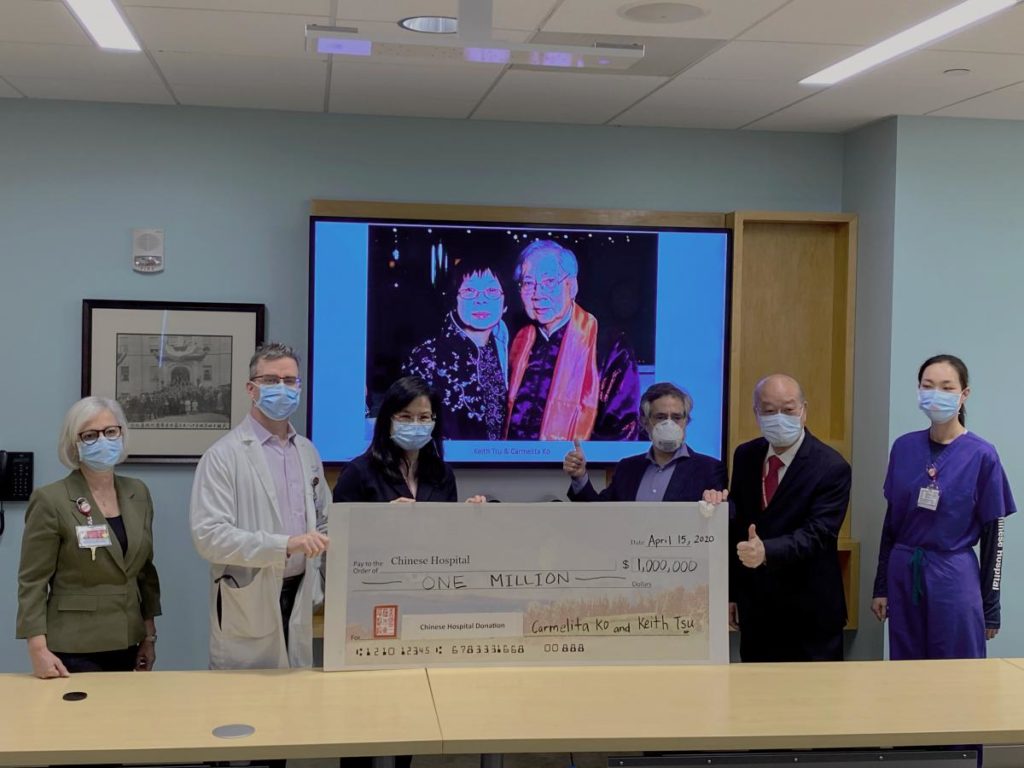California is enduring an alarming rise in COVID-19 cases, hospitalizations and deaths. But one community has succeeded at keeping the virus at bay — offering potential lessons on how early action on the pandemic can change outcomes. Meiying Wu and Alyson Stamos, reporters at the Graduate School of Journalism at University of California, Berkeley, share this story from San Francisco’s Chinatown.
Read the Full Transcript
-
Amna Nawaz:
We are staying in California now, where, as we just heard, new outbreaks are leading to a steady increase of infections and deaths.
But one community you’re about to see is so far succeeding in keeping the virus at bay, offering potential lessons on what happens when you start taking action early.
This story comes to us from Meiying Wu and Alyson Stamos, reporters at the University of California Berkeley’s Graduate School of Journalism.
Here’s their report.
-
Alyson Stamos:
The Chinese New Year’s celebration this past February in San Francisco was a time of excitement, but also a time of fear.
The coronavirus was spreading rapidly across China. And the first case had just been detected in the United States, causing alarm.
-
Jian Zhang:
We can have an outbreak in Chinatown because we have a lot of people going back to China for Chinese new year.
-
Alyson Stamos:
Jian Zhang is the CEO of Chinese Hospital, an acute care facility in the heart of San Francisco’s Chinatown. The neighborhood was poised for disaster, 15,000 people living in approximately 22 blocks, making it one of the densest neighborhoods west of Manhattan.
To make matters worse, most of its residents are elderly, living in cramped single-room occupancy hotels, called SROs.
-
Yongfaz Zhu (through translator):
Our room is very small in the SRO. It’s about 70 square feet.
-
Yongfaz Zhu:
We have little space in here besides the bed. We don’t have our own kitchen. We don’t have our own restroom.
-
Alyson Stamos:
The virus can spread easily here. Shared spaces like these have led to some of the deadliest outbreaks in the country. At Chinese Hospital, they planned for the worst.
-
Alyson Stamos:
Since January, only two Chinatown residents have been hospitalized here. And there have been fewer than 20 cases of COVID-19 in the neighborhood, accounting for one of the lowest rates in the entire city.
Zhang says it was all about preparation.
-
Jian Zhang:
Because the outbreak happened in China first, so they learned a lot of lessons. We don’t have to go through that in order to learn what to do.
-
Alyson Stamos:
In January, Zhang’s staff was already masking respiratory patients outside the hospital to avoid transmission. Her network in China has shipped palates of PPE to Chinese Hospital in San Francisco. Now there is a overflow.
And they are helping mobilize others. As early as February 1, Zhang teamed up with community leaders and city officials to give some of the earliest education on hygiene and sanitation.
-
Man:
We can stop this virus.
-
Alyson Stamos:
Local Chinese media shared the preventative messages widely.
-
Chi Wing Pau (through translator):
Our community realized the potential risk for an outbreak early on because a lot of us experienced the SARS outbreak. A lot of people died.
-
Alyson Stamos:
Chi Wing Pau, manager of Far East Cafe, one the largest restaurants in Chinatown, shared information with his coworkers and customers.
-
Chi Wing Pau (through translator):
I hung up the flyers in the restrooms, kitchen, and outside the restaurant. I also told our staff everything I learned on how to prevent infection.
-
Alyson Stamos:
The restaurant is closed for business right now. They are instead using the kitchen to further keep the virus at bay.
-
Chi Wing Pau (through translator):
We’re making a few hundred meals a day for elderly residents in the SRO. This helps minimize using the shared kitchen and the chance of being infected.
-
Alyson Stamos:
It has, in some ways, been the simple things that have kept the infection rate low, hot meals, more hand sanitizer and increased cleaning.
-
Yongfa Zhu (through translator):
They clean the kitchen, bathrooms and the floor twice a day in our building. We stay in our rooms as much as possible because we’re scared.
-
Alyson Stamos:
Recently, Chinese Hospital gave free tests to residents in Zhu’s building.
-
Yongfa Zhu (through translator):
I’m still afraid. There have been cases in other SROs in the city, so we have to be more careful.
If anyone tests positive, we can quarantine that person. It’s beneficial to the person, because they can get treated, and it can protect others, too.
-
Alyson Stamos:
All 32 residents in Zhu’s building who participated tested negative for the coronavirus. And testing continues. Getting ahead of any infection will be essential for the eventual reopening of the neighborhood.
For the “PBS NewsHour,” I’m Alyson Stamos in San Francisco.







